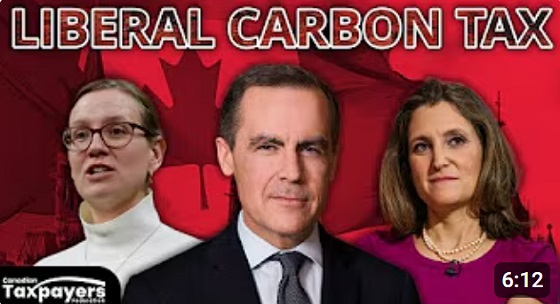Business
EPA slush fund run by progressive John Podesta gave $375B to newly created charities

 MxM News
MxM News
Quick Hit:
The Environmental Protection Agency (EPA) under the Biden administration funneled $375 billion in taxpayer dollars into newly created environmental organizations, many of which lacked transparency and operational history. The massive spending effort, orchestrated by longtime Democratic operative John Podesta, is now under scrutiny, with the new EPA leadership demanding investigations and attempting to recover funds.
Key Details:
- The Biden EPA directed at least $20 billion to environmental groups that had been established only months earlier, with little oversight.
- Some of these organizations, including Climate United Fund and Justice Climate Fund, had no prior financial filings or documented leadership but received billions in taxpayer dollars.
- EPA Administrator Lee Zeldin has called for an investigation, while the DOJ and FBI have launched probes, leading to frozen bank accounts.
Diving Deeper:
The Biden administration’s rush to distribute billions in taxpayer funds to progressive environmental groups is facing intense scrutiny as new revelations expose the lack of oversight in doling out the cash. A recent New York Post investigation found that the EPA, under the direction of Democratic strategist John Podesta, sent billions to nonprofit organizations that were only recently established and had no track record of accountability.
One of the largest recipients, Climate United Fund, received nearly $7 billion from the EPA, handed over personally by then-Vice President Kamala Harris. Public records indicate the group was only incorporated in November 2023—just five months before it received the funding in April 2024. Despite its massive windfall, the organization is not listed in the IRS’s charity database, and there is no public record detailing how it intends to spend the funds.
Other groups benefiting from the EPA’s climate fund include Justice Climate Fund, which received $940 million despite having no tax filings or publicly identified leadership, and Power Forward Communities, which reported just $100 in revenue in 2023 but was awarded a staggering $2 billion. These groups claim to be working on green energy and climate justice initiatives, but watchdog groups have raised concerns over the lack of financial transparency and clear deliverables.
Brent Efron, a former EPA advisor under Biden, was caught on video admitting that the agency rushed to allocate the funds before the incoming Trump administration could step in. “Get the money out as fast as possible before they come in … it’s like we’re on the Titanic and we’re throwing gold bars off the edge,” he was recorded saying in a video released by Project Veritas.
New EPA Administrator Lee Zeldin has since stepped in, calling for an inspector general investigation into what he described as a “gold bar scheme” designed to funnel billions into left-wing environmental initiatives under the guise of green investment. Zeldin emphasized that many of the grant recipients had no qualifications to handle such enormous sums of taxpayer money and vowed to put an end to the abuse.
The Justice Department and the FBI have now launched their own probes into the questionable grants, freezing multiple bank accounts associated with the Biden-era climate fund. The lack of due diligence and the apparent political favoritism in awarding these grants have sparked bipartisan calls for accountability, with critics questioning why existing, well-established environmental organizations were bypassed in favor of newly created entities with no verifiable track record.
2025 Federal Election
MEI-Ipsos poll: 56 per cent of Canadians support increasing access to non-governmental healthcare providers

-
Most believe private providers can deliver services faster than government-run hospitals
-
77 per cent of Canadians say their provincial healthcare system is too bureaucratic
Canadians are increasingly in favour of breaking the government monopoly over health care by opening the door to independent providers and cross-border treatments, an MEI-Ipsos poll has revealed.
“Canadians from coast to coast are signalling they want to see more involvement from independent health providers in our health system,” explains Emmanuelle B. Faubert, economist at the MEI. “They understand that universal access doesn’t mean government-run, and that consistent failures to deliver timely care in government hospitals are a feature of the current system.”
Support for independent health care is on the rise, with 56 per cent of respondents in favour of allowing patients to access services provided by independent health entrepreneurs. Only 25 per cent oppose this.
In Quebec, support is especially strong, with 68 per cent endorsing this change.
Favourable views of accessing care through a mixed system are widespread, with three quarters of respondents stating that private entrepreneurs can deliver healthcare services faster than hospitals managed by the government. This is up four percentage points from last year.
Countries like Sweden and France combine universal coverage with independent providers and deliver faster, more accessible care. When informed about how these health systems run, nearly two in three Canadians favour adopting such models.
The poll also finds that 73 per cent of Canadians support allowing patients to receive treatment abroad with provincial coverage, which could help reduce long wait times at home.
Common in the European Union, this “cross-border directive” enabled 450,000 patients to access elective surgeries in 2022, with costs reimbursed as if they had been treated in their home country.
There’s a growing consensus that provincial healthcare systems are overly bureaucratic, with the strongest agreement in Alberta, B.C., and Quebec. The proportion of Canadians holding this view has risen by 16 percentage points since 2020.
Nor do Canadians see more spending as being a solution: over half say the current pace of healthcare spending in their province is unsustainable.
“Governments shouldn’t keep doubling down on what isn’t working. Instead, they should look at what works abroad,” says Ms. Faubert. “Canadians have made it clear they want to shift gears; now it’s up to policymakers to show they’re listening.”
A sample of 1,164 Canadians aged 18 and older was polled between March 24th and March 28th, 2025. The margin of error is ±3.3 percentage points, 19 times out of 20.
The results of the MEI-Ipsos poll are available here.
* * *
The MEI is an independent public policy think tank with offices in Montreal, Ottawa, and Calgary. Through its publications, media appearances, and advisory services to policymakers, the MEI stimulates public policy debate and reforms based on sound economics and entrepreneurship.
2025 Federal Election
POLL: Canadians say industrial carbon tax makes life more expensive

The Canadian Taxpayers Federation released Leger polling showing 70 per cent of Canadians believe businesses pass on most or some of the cost of the industrial carbon tax to consumers. Meanwhile, just nine per cent believe businesses pay most of the cost.
“The poll shows Canadians understand that a carbon tax on business is a carbon tax on Canadians that makes life more expensive,” said Franco Terrazzano, CTF Federal Director. “Only nine per cent of Canadians believe Liberal Leader Mark Carney’s claim that businesses will pay most of the cost of his carbon tax.
“Canadians have a simple question for Carney: How much will your carbon tax cost?”
The federal government currently imposes an industrial carbon tax on oil and gas, steel and fertilizer businesses, among others.
Carney said he would “improve and tighten” the industrial carbon tax and extend the “framework to 2035.” Carney also said that by “changing the carbon tax … We are making the large companies pay for everybody.”
The Leger poll asked Canadians who they think ultimately pays the industrial carbon tax. Results of the poll show:
- 44 per cent say most of the cost is passed on to consumers
- 26 per cent say some of the cost is passed on to consumers
- 9 per cent say businesses pay most of the cost
- 21 per cent don’t know
Among those decided on the issue, 89 per cent of Canadians say businesses pass on most or some of the cost to consumers.
“Carbon taxes on refineries make gas more expensive, carbon taxes on utilities make home heating more expensive and carbon taxes on fertilizer plants increase costs for farmers and that makes groceries more expensive,” Terrazzano said. “A carbon tax on business will push our entrepreneurs to cut production in Canada and increase production south of the border and that means higher prices and fewer jobs for Canadians.”
-

 COVID-192 days ago
COVID-192 days agoCOVID virus, vaccines are driving explosion in cancer, billionaire scientist tells Tucker Carlson
-

 2025 Federal Election2 days ago
2025 Federal Election2 days agoInside Buttongate: How the Liberal Swamp Tried to Smear the Conservative Movement — and Got Exposed
-

 Bruce Dowbiggin2 days ago
Bruce Dowbiggin2 days agoIs HNIC Ready For The Winnipeg Jets To Be Canada’s Heroes?
-

 Dr. Robert Malone2 days ago
Dr. Robert Malone2 days agoThe West Texas Measles Outbreak as a Societal and Political Mirror
-

 illegal immigration1 day ago
illegal immigration1 day agoDespite court rulings, the Trump Administration shows no interest in helping Abrego Garcia return to the U.S.
-

 Health2 days ago
Health2 days agoHorrific and Deadly Effects of Antidepressants
-

 2025 Federal Election1 day ago
2025 Federal Election1 day agoConservative MP Leslyn Lewis warns Canadian voters of Liberal plan to penalize religious charities
-

 Education1 day ago
Education1 day agoSchools should focus on falling math and reading grades—not environmental activism








